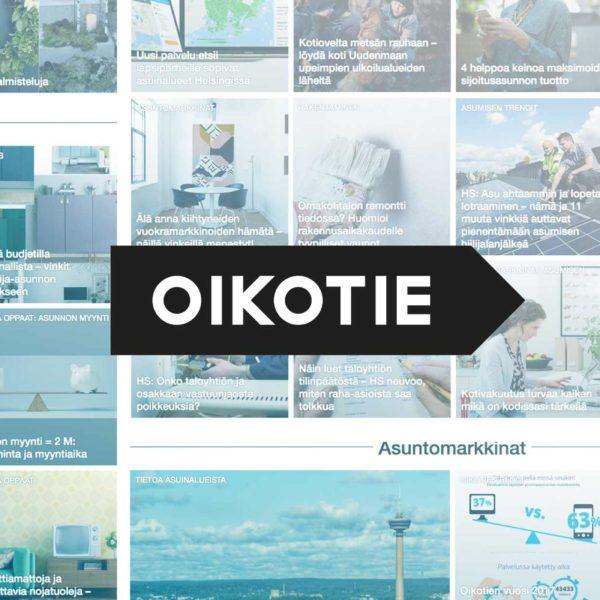Do you need a content strategy?
Not necessarily. Sometimes the best choice is just to start producing content and finding out what works. Starting with an educated guess and developing your content based on data can deliver satisfactory results.
Such an approach works when your target audience is narrow and well-known. Preferably content creation is at the hands of only a few individuals. In these cases, you can skip creating a content strategy or do it later.
However, you will need a content strategy when:
You are redesigning a large website
If your website consists of hundreds of pages, maintaining and updating the content takes a lot of effort. And can ultimately be redundant.
When redesigning a website, a content strategy helps define the content to keep, the content to delete, the content to add and the content to update.
You want to create a more effective content culture
You have plenty of potential resources, but it feels hard to get anything published? Subject-matter experts are too busy or the legal team says no to everything?
A content strategy can deliver the tools necessary for improving the internal culture of an organisation. Improvement comes from training, challenging and developing processes and roles that enables efficient content creation.
You need new ideas
You are not alone in pondering what kind of content to create.
As long as you have a product or service that solves a customer need or problem, you have the potential to succeed with content marketing. A content strategy will help you look for potential ideas and shape them into stories that sell.
Who needs content strategy?
A content strategy is best suited for organisations that want to better serve their existing and potential customers online. Practically everyone then.
However, costs are a factor. A strategy project typically costs 7 500–20 000€. To deliver a return on your strategic investment, your annual marketing budget should therefore be at least 100 000€.
The benefits of content
A content strategy defines the goals and platform for content creation. It’s helpful to make a distinction between the benefits of a content strategy and the benefits of content creation as a strategy alone is of limited use. You need to put it into action.
The benefits of content strategy
- Increased customer understanding
- Insight into the most valuable content to produce
- More efficient content creation thanks to improved processes
- Insight into the best performing channels and formats resulting in a more efficient allocation of the marketing budget
The benefits of content creation
- More visitors to your website with a higher likelihood to buy
- Increased conversion rate
- Saving resources in sales and customer service by enabling self-service
How we work
The strategy model we use is based on the model from Kristina Halvorsen’s Content Strategy for the Web. We have honed the model for years for it to be fit to the Finnish environment.
The core strategy
Combining the business goals and the needs of the client are the core of a content strategy. This meeting point will give a strong base for creating high-performing, high-quality content. The core strategy is all about combining your customers’ needs with your company’s unique value.
The core strategy answers to following questions:
- To whom we create the content?
- What kind of content do they need?
- What do we want to achieve with the content?
- How will the content benefit our business?
Themes
The themes section is about brainstorming, validating, and scheduling concrete themes and content types based on the core strategy. We will find the topics which will be of interest of the audience now and in the future, and define what kind of content should be produced and published. In addition, we will define the forms (blog post, video etc.) that the content should take.
A content plan is the cornerstone of high-performing content production. The plan will include all the topics that will be used. Moreover, the plan will tell when and in which channels the content will be published. Of course, while the plan defines the outline for the work in the long run, it is possible to also add ad hoc topics.
Channels
The roles for the current and possibly new channels will be defined as a part of marketing communication in the channels section. We will define where the contents will be and how people will find them, how the channels will differ from each other, and how the channels will be used to communicate. We will examine the visitors’ journey until the purchase and how to support the buyer’s journey with content.
Culture
Getting your staff to commit to the strategy is the key to content marketing’s success. The culture section is about focusing on the company’s content production processes and roles. Furthermore, we will try to find a way to use the company’s existing expertise to create content. Therefore, we will define who are responsible for creating the content and its lifecycle. We will ensure continuous motivation of the staff to create and implement new content.
Optimization
In the optimization part, the indicators, the goals, and the model of continuous follow up, will be set to each channel. We will create a framework which allows us to follow the succesful implementation of the content strategy. The indicators enable to adjust the strategy so that it will bring in better results. Our goal is to spot successful content and use the lessons learned to create even better content.
Why hire us to build your a content strategy?
We’ve been fine-tuning our strategy model for over a decade.
It has taken years to build the best model possible as all organisations and industries are different. A pattern that works in industry cannot be directly replicated to another.
That’s why our way-of-working is very collaborative. We organise workshops, brainstorm together and make decisions together. That’s the only way to truly understand the uniqueness of your organisation.
Over the years we’ve already learned what makes a strategy applicable and what are the resources required to execute it.
We promise to deliver a content strategy that you can truly execute.
Finally, let it be mentioned that we are generally not assholes. While we will ask questions and challenge your thinking, we are still fun to work with.

